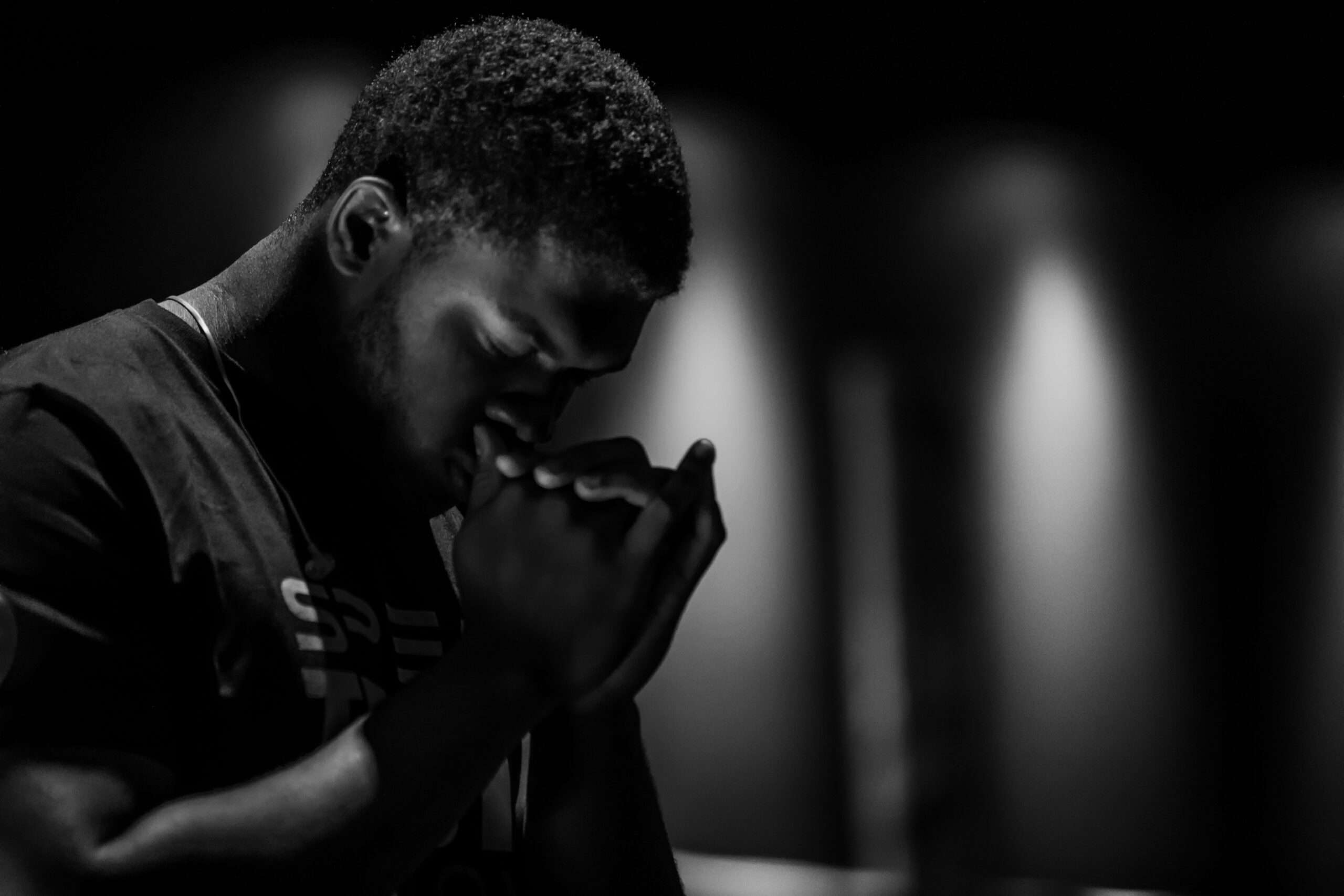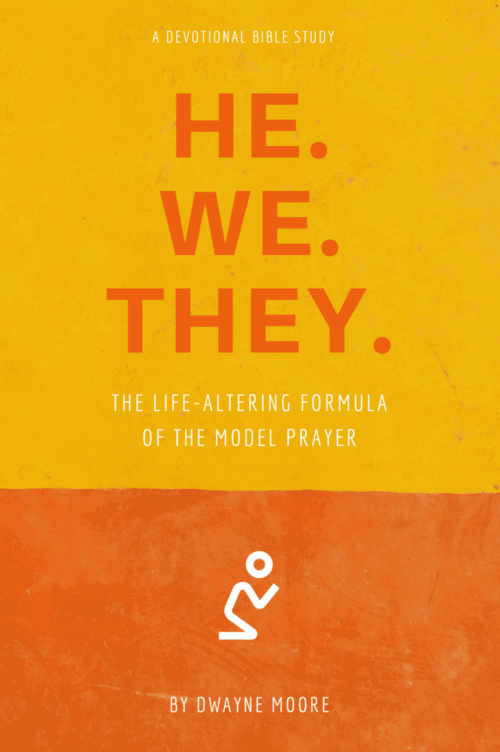
Prayer and Worship
By dwayne moore, founder and president of NLWI
I have a friend named Donald who is a pastor. (Donald is also the Africa Director for Next Level Worship International.) He lives in Zambia, a beautiful country in south-central Africa slightly larger than the state of Texas. Donald has a heart for God that is also larger than Texas. I have had the opportunity to coach Donald and work with him in our international ministry for several years. One of my favorite things is hearing Donald pray. Trust me when I say, if you’re having a bad day, you want Donald to pray with you. I promise you will be encouraged and fired up by the time he says amen! Somehow Donald always manages to turn his prayers to praise.
That is how it should be when we pray. Prayer, after all, is communion with God. And the more we commune with this awesome and loving Father of ours, the more it should warm our hearts to worship him.
I want you to try something. If you know the Lord’s Prayer, I want you to quote it aloud. (You can also read it in Matthew 6:9-13.) As you read it aloud, think carefully about what you are saying. Savor every word and be sure you speak to God as you quote the prayer. Imagine him bending over you and listening as you pray to him. Stay focused and intentional all the way to the final amen. See if you sense a stirring building in your heart as you go through the prayer.
So, how was it? Did you feel a stirring inside you when you recited the prayer? The way the Lord’s Prayer lifts our thoughts and hearts toward the Father, the way it places our burdens before him, and the uncanny way it climaxes with exuberant adoration and a rousing amen—everything about this amazing model of prayer expresses our complete dependence upon God. One cannot pray the Lord’s Prayer in earnest without realizing God is God and we are not. And that ultimately sums up what true worship is—acknowledging and submitting to the one, true Lord.
Prayer, after all, is communion with God. And the more we commune with this awesome and loving Father of ours, the more it should warm our hearts to worship him.
Please read Psalm 57 now. Notice how David’s prayer gradually moved from a desperate cry for help to a God-exalting declaration of praise. Highlight each reference that could be considered an expression of worship and an acknowledgment of who God is.
From the Heart
The word worship comes from an old English word, “worthscipe” (or worth-ship). Worship in its simplest form is giving worth to something— something we believe is worthy to have all our attention and affection. We attribute worth to God when we love him with our whole heart, mind, soul and strength (Mark 12:30).
Worshiping Jehovah God involves both acts of obedience and an attitude of love for God and others. For example, praying the Lord’s Prayer can be an act of worship, but only if we mean the words of the prayer. That is because acts of worship must flow from our hearts of worship. True worship means loving him and wanting to obey him and do things that please him.
Paul said, “So, whether you eat or drink, or whatever you do, do all to the glory of God” (1 Corinthians 10:31). Worship is much more than singing or going to church. Worship should be our way of life. From things as common as eating and drinking, to sharing our faith with others and showing love to the unlovable—everything we do can qualify as worship when it flows from hearts that love and honor God above all.
…acts of worship must flow from our hearts of worship. True worship means loving him and wanting to obey him and do things that please him.
Worship is not just something we do on Sundays at church. And it’s certainly more than singing or attending a service, although those are included. Worship is a lifestyle. It involves everything we do and think and are. It means loving God with every breath we take and every move we make. I love how Rick Warren sums it up. Worship, he says, is simply “bringing pleasure to God.”1
In 1 Corinthians 10:31 Paul wrote, “Whether you eat or drink or whatever you do, do it all for the glory of God.” Paul chose the examples of eating and drinking to illustrate how our most common and everyday activities can and should bring glory and honor to Christ.
So, what does this kind of worship look like in everyday life? Is it really possible to worship God when you’re at home or school or work? How can even your simplest and most common tasks bring honor and worship to God? Please spend a few minutes considering how you would answer these questions. Be sure to journal your thoughts.
Deep Dive
As I share in my book, Pure Praise: A Heart-focused Bible Study on Worship (Group Publishing, 2017), we are to love the Lord, our God, with everything we are: heart, soul, mind, and body (Deuteronomy 6:4-5). When we do this, we are paying homage to him as our superior. Just as the people of Judah bowed in surrender, we must surrender to him as our Lord. Anything less is not biblical worship.
Jesus verified the priority of worship when he quoted from Deuteronomy 6:4-5. When he was asked, “Of all the commandments, which is the most important?” Jesus replied, “The most important commandment is this: ‘Hear, O Israel! The Lord our God is the one and only Lord. And you must love the Lord your God with all your heart, all your soul, all your mind, and all your strength” (Mark 12:28-30, New Living Translation).
People have asked me, “Isn’t the Christian life really just a bunch of ‘Thou shalt nots’?” To which I reply, “No, the Christian life is actually one big ‘Thou shalt’…love God.” It’s really that simple: Worship him completely.2
True biblical worship encompasses our entire lives.
At some point in your life, you may have been as I was (and so many in our churches still are!). Anytime you heard the word worship, you assumed that word mostly referred to singing, clapping, and talking to God. But worship is actually much more than that: True biblical worship encompasses our entire lives. In fact, in his book The Ultimate Priority, Dr. John MacArthur Jr. explains that for our worship to be “whole-life” it must include three aspects or directions. Most certainly, we worship God when we focus directly on him, pointing our worship upward (as we normally think of worship). However, we should also worship God inwardly. The third direction we should worship him is outwardly, to those around us.3
This simple but profound understanding of worship as three-directional is the bedrock teaching within our ministry at Next Level Worship International. Everything we teach, write, and do at NLWI flows out of this foundational definition of worship. Our global team has had the privilege to instruct and train multiple thousands of church leaders and Christian believers about whole-life worship. We have seen first-hand the tremendous impact this lifestyle approach to worship makes in people’s lives and in their families, churches, and communities. (For Bible studies and other resources on whole-life worship, I encourage you to visit our website at NextLevelWorship.com.)
What’s Prayer Got to Do With It?
This lesson is on “prayer and worship.” Some might wonder: What is the connection between those two topics? Dr. MacArthur gives us a good answer for that: “Prayer is primarily an act of worship in which the one praying submits to the authority of the One to whom the prayer is offered.”4 As Dr. MacArthur explains it, the Model Prayer is “primarily an expression of worship…Prayer is the highest form of worship that an individual can participate in.”5
Could it be that Jesus knew if we pray the Model Prayer in Matthew 6 as a habit in our lives, it could help form in us a heart of worship? Think about it. What better way to live out the challenging instructions Jesus gave us in the Sermon on the Mount than as a sincere believer worshiping God with all her heart?
Could it be that Jesus knew if we pray the Model Prayer in Matthew 6 as a habit in our lives, it could help form in us a heart of worship?
Consider these examples from Jesus’ sermon in Matthew 5-7:
- Jesus said, “Blessed are the meek,” and those who hunger for righteousness, and the merciful, and the pure in heart, and the peacemakers. Each of these qualities is a matter of the heart.
- Jesus said, “Rejoice and be glad” when we’re persecuted because of him. However, we can’t be glad on the outside if we’re not glad on the inside. We can’t fake joy; either it’s in our hearts or it’s not.
- Jesus said, “Let your light shine.” For us to want to let our light shine before others, we need a genuine burden for them. And where do such burdens of love and concern reside? In our hearts.
- Jesus said our righteousness should exceed “that of the scribes and Pharisees.” According to Strong’s Concordance, the righteousness Jesus referred to is “integrity, virtue, purity of life, uprightness, and correctness in thinking, feeling, and acting.”6 None of those things is possible if our hearts are not right with God and committed to him.
- Jesus said we are not to kill or commit adultery, and then he pointed out that the mere intention behind these actions constitutes sin in one’s heart.
- Jesus said we should lay up treasures in heaven, “for where your treasure is, there your heart will be also.”
These examples make it quite clear that the Lord is concerned about the state of our hearts. To reiterate, I believe one of the main reasons Jesus told his disciples to “pray like this” was to help form in them (and in us) a heart that loves and follows God.
I believe one of the main reasons Jesus told his disciples to “pray like this” was to help form in them (and in us) a heart that loves and follows God.
To help drive home the idea that prayer should flow from a heart of worship, I want us to consider something Jesus said in Matthew 15. In this passage Jesus was rebuking the Pharisees for their hypocrisy regarding their traditions versus God’s laws.
Please read the first 11 verses of Matthew 15 now. Especially notice what Jesus said about their hearts and their worship in verses 8 and 9.
Jesus called the Pharisees’ worship “a farce” because it did not come from hearts sold out to God. Their worship was not real. In essence he was saying what comes from our lips should flow from our hearts of worship. That should, of course, include prayer. Prayer from a worshiping heart is the kind of prayer God is sure to hear and answer.
In Matthew 15:8-9 Jesus was quoting the prophet Isaiah. Here is something else Isaiah said: “Behold, the LORD’s hand is not shortened, that it cannot save, or his ear dull, that it cannot hear; but your iniquities have made a separation between you and your God, and your sins have hidden his face from you so that he does not hear” (Isaiah 59:1-2).
Did you catch that last line? That is some bold talk, but it’s a truth we need to hear and heed. God will not listen if we harbor sin in our hearts. Unconfessed sin causes our hearts to be far from him. We need to confess and forsake our sins, knowing he is faithful and just to forgive us. Because of his awesome mercy, we can “go right into the presence of God with sincere hearts fully trusting him. For our guilty consciences have been sprinkled with Christ’s blood to make us clean…” (Hebrews 10:22a NLT).
Prayer from a worshiping heart is the kind of prayer God is sure to hear and answer.
Common Ground
Can we worship without praying? Technically yes. Can we pray without worshiping? Again, yes…but not for long. One will always lead to the other. If we pray sincerely, it should lead us to worship. If we worship sincerely, it will most certainly lead us to pray. This is because authentic worship and prayer have something vitally important in common: They both flow from hearts that commune with God. It is a heart of communion and a desire to fellowship with God which drives us to our knees, draws us to the cross, and causes us to want to yield our lives to him every day.
By the time the wise men came to Jesus he was probably a small child, maybe even 2 or 3 years of age. We’re not told for sure, but I find it hard to imagine them not addressing him directly at some point while they were there. I believe it is likely they verbally spoke to him. Here is what we know for sure: “On coming to the house, they saw the child with his mother Mary, and they bowed down and worshiped him. Then they opened their treasures and presented him with gifts of gold, frankincense and myrrh” (Matthew 2:11).
What a privilege those men had. No wonder they rejoiced with exceeding great joy when they saw the star. They knew they were about to commune with God himself! They got to communicate with Jesus one on one. They worshipped him, essentially praying to him.
From what we have studied today, I hope you can see how we cannot separate worship and prayer. They always go hand in hand. And the Lord’s Prayer, if prayed as a habit and pattern each day, can help form in us a heart that loves and glorifies God—not just with our lips, but also with our lives.
Time to Pray!
You might think of the Lord’s Prayer (aka the Model Prayer) as divided into 3 sections: HE, WE, and THEY. I want you to pray through each of those sections now. Take your time and be sure what you pray comes from your heart that longs to worship the Lord.
HE – Vertical. Praise the Father and surrender to his will. It might help to read or listen to, recite, and/or sing a favorite song or hymn that draws you into worship, encouraging you to humble yourself before our holy, majestic, worthy God and surrender your heart to him.
WE – Personal. Now write down something that concerns you right now. It could be a financial problem or an issue at work or at home. Share your needs as a prayer to God.
THEY – Kingdom. Pray for someone besides you and your family. It might be your neighbor or someone you go to school or work with. Pray for other people’s needs instead of your own now.
Psalm 119:164 says, “I will praise you seven times a day because all your regulations are just” (NLT). Think about your day ahead. Schedule seven times that you can praise the Lord throughout the day. You may need to set an alarm to remind you. Do whatever you need to do to help you form a habit of daily, continual praise.
Dwayne Moore is a best-selling author and teacher. He is founder and president of Next Level Worship International, Inc., a non-profit discipleship ministry. His books and teaching videos have been utilized by Christians in more than 80 countries. Dwayne has ministered in over 1000 churches and conferences.
NOTE: Much of this lesson is an excerpt from HE. WE. THEY. The Life-Altering Formula of the Lord’s Prayer © 2022 by Dwayne Moore. Used by Permission.
FOOTNOTES
1 Rick Warren, The Purpose-Driven Life (Grand Rapids, MI: Zondervan, 2002), 64.
2 Dwayne Moore, Pure Praise: A Heart-Focused Bible Study on Worship REVISED EDITION (Colorado Springs: Group Publishing, 2018) 13.
3 John MacAruthur Jr., The Ultimate Priority (Chicago: Moody Press, 1983), 14-16.
4 John Macarthur, “Prayer: The Highest Form of Worship,” Grace to You, August 26, 2012, https://www.gty.org/library/sermons-library/90-447/prayer-the-highest-form-of-worship.
5 ibid.
6 Strong’s Concordance, 1343 Dikaiosuné, Bible Hub, https://biblehub.com/greek/1343.htm.






Leave a Reply
You must be logged in to post a comment.